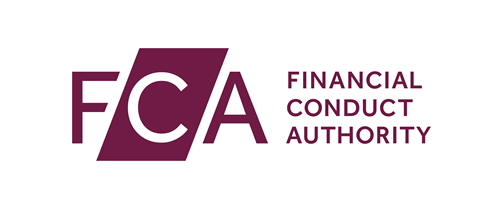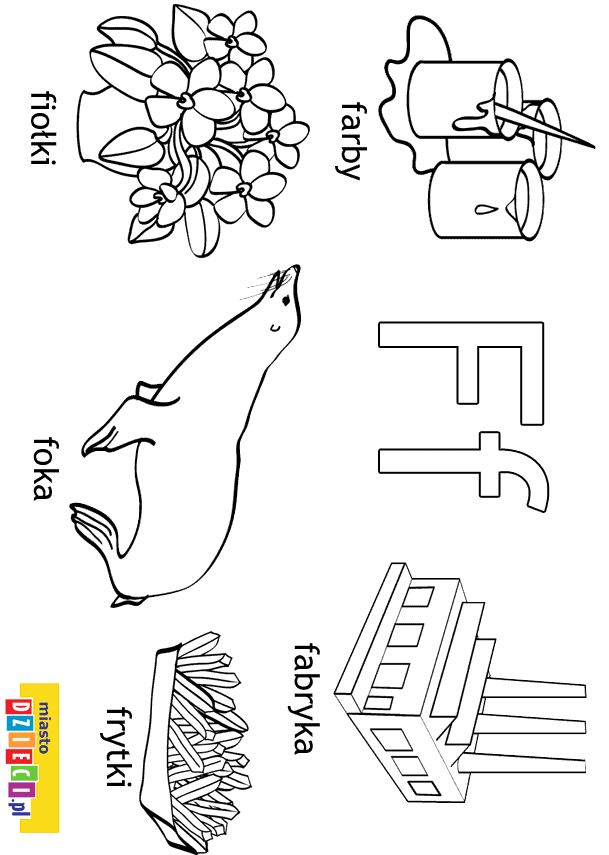template - letter of understanding - 4 template creating a letter of understanding for mentors/advisors/supervisors and graduate
Template - Letter of Understanding - 4
TEMPLATE
Creating a Letter of Understanding
for Mentors/Advisors/Supervisors and Graduate Students
Statement of Purpose
The combined effort of graduate students and their
advisors/supervisors is essential if we are to achieve excellence in
graduate education. Because conflict and /or tension can arise in
situations where expectations are unclear or mismatched, a thorough
understanding of each person’s role is critical to productive learning
and successful outcomes. The following is a suggested template for a
Letter of Understanding that can serve as the basis for discussion
between graduate students and their supervisor(s) to clarify
expectations. This document has been prepared jointly by the School of
Graduate and Postdoctoral Studies, the Society of Graduate Students
and the Department of Visual Arts and is geared to helping initiate
discussion at the initial stages of graduate training, with awareness
that the relationship and expectations will evolve with time. As a
result, the Letter of Understanding may need to be revisited with
progression through the program.
Below you will find ideas to consider during your discussions. In an
attempt to create a generic template that is applicable to many
disciplines, some suggestions may be more appropriate than others for
discussions between supervisor and student in certain areas. Please
use these ideas and others that may be appropriate to your discipline
to develop suitable letters of understanding.
OVERALL ROLES & RESPONSIBILITIES:
Supervisor/Advisor(s):
It is my responsibility to:
*
make every effort to ensure that student’s learning and research
environment is adequately supported with guidance in choosing
appropriate course work, providing suitable resources.
*
ensure that student’s project has an appropriate
hypothesis/question and achievable goals, using the Thesis
Guidelines as a framework
*
establish a professional working relationship to guide student in
approach to research
*
guide student in learning to work independently and as a member of
a broader intellectual community
*
give credit in an appropriate manner to graduate student
contributions to scholarly activity, whether presented at
professional meetings, publications, or in applications for grants
*
meet regularly/weekly/monthly with student to provide guidance,
assess progress and assist student in the goal of completing the
program on time
Candidates:
It is my responsibility to:
*
learn skills and approaches to thinking about problems that are
suitable for an advanced degree
*
exhibit independent judgment, academic rigor, and intellectual
honesty
*
devote full time to scholarly studies and make timely progress
towards completion of degree (There is/is not a policy on a
specific number of hours to spend carrying out research, but
regular involvement in research activities is required.)
*
meet regularly/weekly/monthly with advisor/supervisor and advisory
committee to assess progress
*
participate in departmental meetings, seminars and training
regularly as determined with supervisor/ advisor
*
interact with fellow students, both graduate and undergraduate,
staff and faculty in a professional and mature manner
*
negotiate amount of time and timing of holidays
MEETINGS:
Meetings can be called by the student or the supervisor, and usually
by common agreement, with the frequency varying according to the stage
of the program and the tasks at hand.
Supervisor/Advisor:
It is my responsibility to:
*
monitor the accuracy, validity, and integrity of student’s
progress
*
respond in timely manner with comments/revisions to drafts of
applications, reports or research presentations
*
ensure that student is aware of relevant policies and procedures
for the conduct of research
*
be available to meet on a regular basis and as needed for progress
and completion of the program
Candidates:
It is my responsibility to:
*
set up weekly meetings with supervisor(s) to discuss progress in
research and to meet deadlines
*
balance duties and allocate professional time to be academically
effective
*
hold face-to-face meetings with supervisory committee at least
once per year and preferably every 6 months
*
distribute progress report and future plans to advisory committee
at least a week in advance of meetings
*
plan appropriately to allow time for your supervisor(s) to review
and comment on reports before meeting
TIMELINES:
*
every effort should be made to complete research, course work
and/or thesis within the (1-year, 2-year/4-year) period that is
typical for specific degree program
*
be aware that financial support beyond normal length of program is
difficult, if not impossible to obtain. Continued support beyond
that time will only be considered if research progress has been
substantial, and that the likelihood of completion of the work
within a further (four/eight) month period is very high.
FUNDING:
*
understand that graduate student support may come from a variety
of sources that may include Graduate Teaching Assistantships,
Scholarship funding from the Faculty of Graduate Studies, internal
and external scholarships and bursaries, and research funds
acquired by your supervisor (designated as Research
Assistantships)
*
students will be assigned Graduate Teaching Assistantships to gain
teaching experience
*
students are expected to apply for scholarships appropriate to
program of study
*
supervisors/advisors are expected to provide consultation about
scholarship and bursary applications in advance in order to look
at ways of optimizing chances of success
SAFETY:
*
safety courses requirements (e.g., Workplace Hazardous Materials
Information System (WHMIS) and the New Employee Health and Safety
Orientation.)
*
departmental safety officers will assist students in determining
if further training is required
PERSONAL CONDUCT: Research and/or Studio space:
Supervisor/Advisor:
It is my responsibility to:
*
maintain good professional and personal relationships with
trainees in the research group
*
treat all members of the studio environment (and their work) with
verbal and intellectual respect
Candidates:
It is my responsibility to:
*
keep space tidy, respect the space of others, etc.
*
understanding space and equipment is shared and that care must be
exercised, with problems reported as they arise
*
not borrow others’ supplies without asking, or remove anything
from the laboratory without asking permission
*
participate in periodic studio cleanup
*
maintain good professional and personal relationships within the
graduate research group
*
treat all members of the graduate community (and their work) with
verbal and intellectual respect
PUBLICATIONS:
Candidates & Supervisors
It is our joint responsibility to
*
present research results that are publishable and/or exhibited in
reputable, externally refereed journals, and gallery (creative)
contexts, thereby achieving the goals of creating new knowledge
and reporting it to the appropriate community
*
determine authorship – process for shared and non-shared
authorship; the importance of first authorship for the student
*
recommend timely completion and publication of manuscripts before
completion of the program to facilitate preparation of thesis
*
publish the findings from the research.
INTELLECTUAL PROPERTY:
*
original research is carried out by students; the intellectual
property component may wholly or in part belong to student
*
maintenance of appropriate confidentiality concerning the research
activities, in accordance with existing practices and policies of
the discipline
*
circumstances of the research and student’s contributions will
influence the extent of your intellectual property (see
http://www.cags.ca/ for discussion of the factors that come into
play)
PROFESSIONAL DEVELOPMENT:
*
work together to find opportunities for students to attend
suitable conferences and present research findings
*
investigate sources of funding for travel
*
encourage participation in non-academic programs for professional
development, such as effective writing courses, teaching training
programs, and workshops on research grants and conflict resolution
__________________________________ ___________________________
Supervisor Date
__________________________________ ___________________________
Graduate Candidate Date
 5 SYSTEMS AND CONTROLS APPLICATION FOR AUTHORISATION CHECKLIST FOR
5 SYSTEMS AND CONTROLS APPLICATION FOR AUTHORISATION CHECKLIST FOR PROCEEDINGS OF THE MULTIDISCIPLINARY SENIOR DESIGN CONFERENCE PAGE 7
PROCEEDINGS OF THE MULTIDISCIPLINARY SENIOR DESIGN CONFERENCE PAGE 7 ENTPEEUROOPA PARLAMENTENTPE 2004 2009 COMMISSION{CULT}KULTUURI JA HARIDUSKOMISJONCOMMISSION REFPROC20082225REFPROCREFTYPEPROC(INI)REFTYPEPROC DATE{15122008}15122008DATE
ENTPEEUROOPA PARLAMENTENTPE 2004 2009 COMMISSION{CULT}KULTUURI JA HARIDUSKOMISJONCOMMISSION REFPROC20082225REFPROCREFTYPEPROC(INI)REFTYPEPROC DATE{15122008}15122008DATE EXPEDIENTE PARA LA ADJUDICACIÓN DE CONTRATOS MENORES EL CONTRATO
EXPEDIENTE PARA LA ADJUDICACIÓN DE CONTRATOS MENORES EL CONTRATO NURÁGY – PRAVĚKÉ SARDINSKÉ TVRZE PETR MIKOTA K AŽDÝ
NURÁGY – PRAVĚKÉ SARDINSKÉ TVRZE PETR MIKOTA K AŽDÝ GRUPA III „BRATKI” 56 LATKI NAUCZANIE ZDALNE
GRUPA III „BRATKI” 56 LATKI NAUCZANIE ZDALNE  M ÁSTER INTERUNIVERSITARIO EN BIOÉTICA Y FORMACIÓN TÍTULO DEL
M ÁSTER INTERUNIVERSITARIO EN BIOÉTICA Y FORMACIÓN TÍTULO DEL